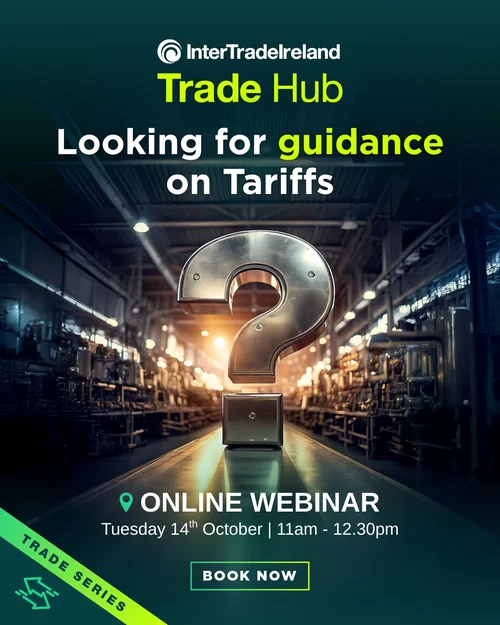Understanding Customs Duties When Importing into Ireland and Northern Ireland
When moving goods into Northern Ireland, under the Windsor Framework this article gives further details on declaring goods as ‘Not at Risk’
Contents
- What Does "Not at Risk" Mean for Goods in Northern Ireland?
- What goods can be declared as "Not at Risk"
- Key Tips for Businesses
What Does "Not at Risk" Mean for Goods in Northern Ireland?
"Not At Risk" means that goods brought into Northern Ireland from Great Britain are not expected to enter the EU (i.e. Ireland or any other EU country) — either directly or after processing. As a result, these goods are not subject to EU customs duties (tariffs).
Correctly declaring goods as “Not at Risk” helps businesses avoid unnecessary costs.
What goods can be declared as "Not at Risk"
Goods can be declared "Not at Risk" if one or more of the following applies:
1. Zero Tariff Goods
- If the EU’s Common External Tariff is 0% for that item, it’s automatically "Not at Risk" — no duty applies.
2. UK Internal Market Scheme (UKIMS)
- Businesses registered with UKIMS can declare goods "Not at Risk" if they stay in Northern Ireland or return to Great Britain.
- Evidence must be kept proving the goods remained in Northern Ireland or returned to GB.
3. Trade and Cooperation Agreement (TCA) Preference
- If goods are of UK origin, businesses can claim tariff-free access under the UK-EU Trade and Cooperation Agreement, even if the goods do enter Ireland or the wider EU.
- Proof of origin is required.
Key Tips for Businesses:
- Even if you’re registered under UKIMS, each product must be checked against eligibility rules.
- Businesses must retain documents showing why the goods were declared “Not at Risk.”
Further Guidance
Gov.UK - Declaring Goods Not at Risk
Prepared by the InterTradeIreland Trade Hub Team
Article Reviewed: August 2025
.png?width=400&height=85&name=Untitled%20(2).png)

